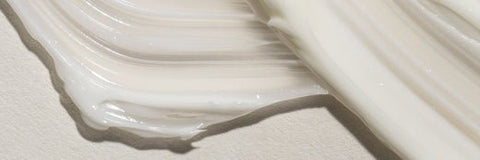When you are building your skincare routine, you may have questions on the difference between face serums and face oils. Do you need both? Does one work better than the other? It can be a confusing issue, which is why in this article, we’ll discuss the difference between a serum and an oil, the benefits of each, and why you might want to use one over the other.
IN A NUTSHELL
Main Takeaways: Generally speaking, an oil is meant to moisturize the skin, while a serum is meant to do a specific, specialized job. Unlike oils, serums can also be water based.
Good to Know: If you have specific skin concerns, such as dullness, dark spots, or fine lines and wrinkles, a serum might be the way to go.
Recommended Products: ‘A’ Game Retinol Serum, Just Dew It Hydrating Serum, and Nectar of the C Vitamin C Serum.
Serums vs Oils: What's the Difference?
In general, the question of serums vs. oils can be answered fairly simply: oils moisturize the skin, while serums have specific, designated jobs. Oils are obviously oil based, but a serum can be either water based or oil based.
Usually, serums are lighter than oils, but that doesn’t necessarily mean they always are. Also, face oils usually don’t penetrate beyond the top layer of skin, but there are many serums that can.
Benefits of Serums
Serums treat a large variety of concerns and offer many benefits. Once you understand all the types of serums available and what they can treat, you’ll want to make sure they become a regular part of your skin care routine.
Serums can brighten the skin - especially one with vitamin C. It’s known for its ability to brighten the skin and give you a gorgeous glow. In our Nectar of the C serum, we use sodium ascorbyl phosphate, a form of vitamin C that is more stable and less likely to cause irritation.
Serums can help reduce dark spots - A vitamin C serum does more than just make skin glow. It also helps reduce the look of dark spots and even skin tone over time.
Serums can help reduce the appearance of fine lines and wrinkles - Many serums contain oils or acids like hyaluronic acid that can not only infuse the skin with hydration by going into the deeper layers of the skin, but which can help keep it there as well. Our Just Dew It hydrating serum includes antioxidant-rich sea buckthorn oil, prickly pear oil, and hyaluronic acid to deeply hydrate the skin.
Serums can help reduce the appearance of fine lines and wrinkles using the power or retinol, which is known to increase cell turnover and encourage collagen production. By doing so, you’ll see firmer, smoother skin. Retinol is very active and can irritate the skin. Start by using a gentle retinol serum, like ‘A’ Game, every other day until your skin adjusts.
Serums can reduce the appearance of pores by exfoliating the skin. If clogged pores are a regular problem for you, scout out a serum that helps exfoliate the skin with the use of an alpha hydroxy acid, or AHA.
Benefits of Face Oils
The primary job of a face oil is to hydrate or moisturize the skin, and there are many out there that do just that and more.
Remember, you don’t have to just buy one type of oil to do each job. There are plenty of face oils that are actually a combination of many other beneficial oils. These oils can be their own step in your skin care routine. For example, a face oil might contain both rosehip seed oil for moisture and sea buckthorn oil to protect the skin from environmental stressors. Let’s look at a few great oils for the face:
Rosehip Seed Oil - Full of antioxidants and fatty acids that protect and moisturize the skin, rosehip oil does a great job of keeping the skin hydrated which is why we’ve included it in our Prince Charcoal detox mask.
Jojoba Oil - Also included in Prince Charcoal as well as Nectar of the C, is jojoba oil which is known for its ability to help balance the oils in your skin.
Sunflower Oil - One of the best things about sunflower oil is that it helps the skin but it won’t clog pores, which is why we’ve included it in our So Clean! facial cleanser.
Olive Oil - If you thought olive oil was great on salads, wait until you try it for your skin. An excellent antioxidant, olive oil is wonderful at protecting your skin from environmental stressors that are out to harm it.
Sea Buckthorn Oil - Full of antioxidants, sea buckthorn oil is known for its ability to really soothe the skin. It is naturally bright in color, lending our Just Dew It hydrating serum and H2 Oh Yeah hydrating moisturizer their pretty yellow hue.
Why You May Want to Use a Serum vs. an Oil
Deciding which to use is based on your skincare goals. Serums generally target one issue, while oils are generally used to restore moisture– although that’s not necessarily all they do. If you’ve got a very specific skin issue, such as dark spots, we recommend a brightening serum. If you’re trying to hydrate your entire face, go for an oil.
Also keep in mind that you can use both together. If your serum happens to contain an oil and you have oily skin, that might be a little too much for your skin. However, if you have normal to dry skin, you might find that your skin will benefit from both. Just remember to use your serum after your cleanse, then use your face oil last to moisturize the skin.
Also note that many serums and moisturizers include the oils that we mentioned above. You don’t have to use a singular face oil to reap the benefits they offer.
We hope this helps clarify the difference between serum vs. oil. Like a lot of skin care decisions, it really depends on what you’re trying to accomplish with your skin care. Either way, both do some great things for the skin.










